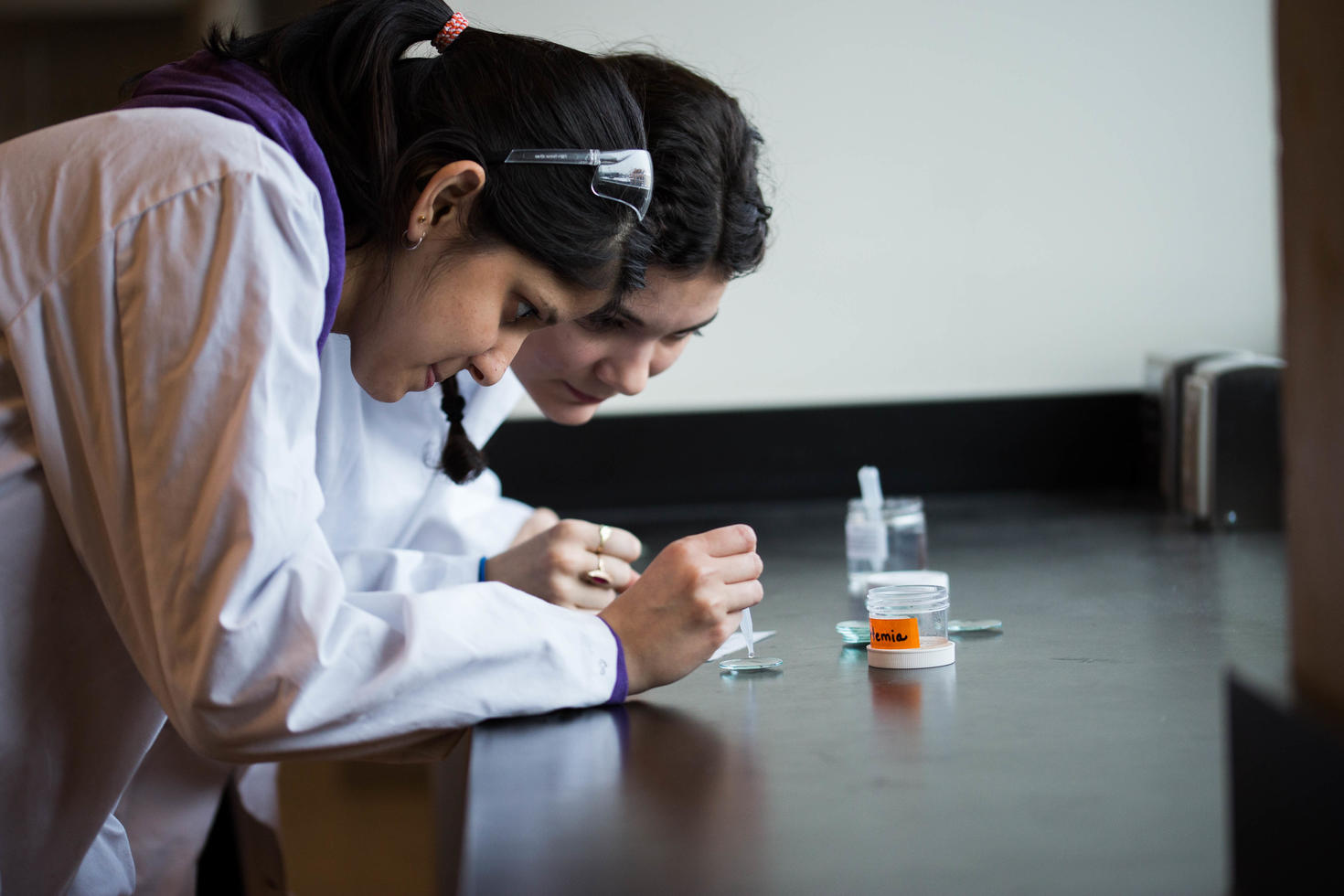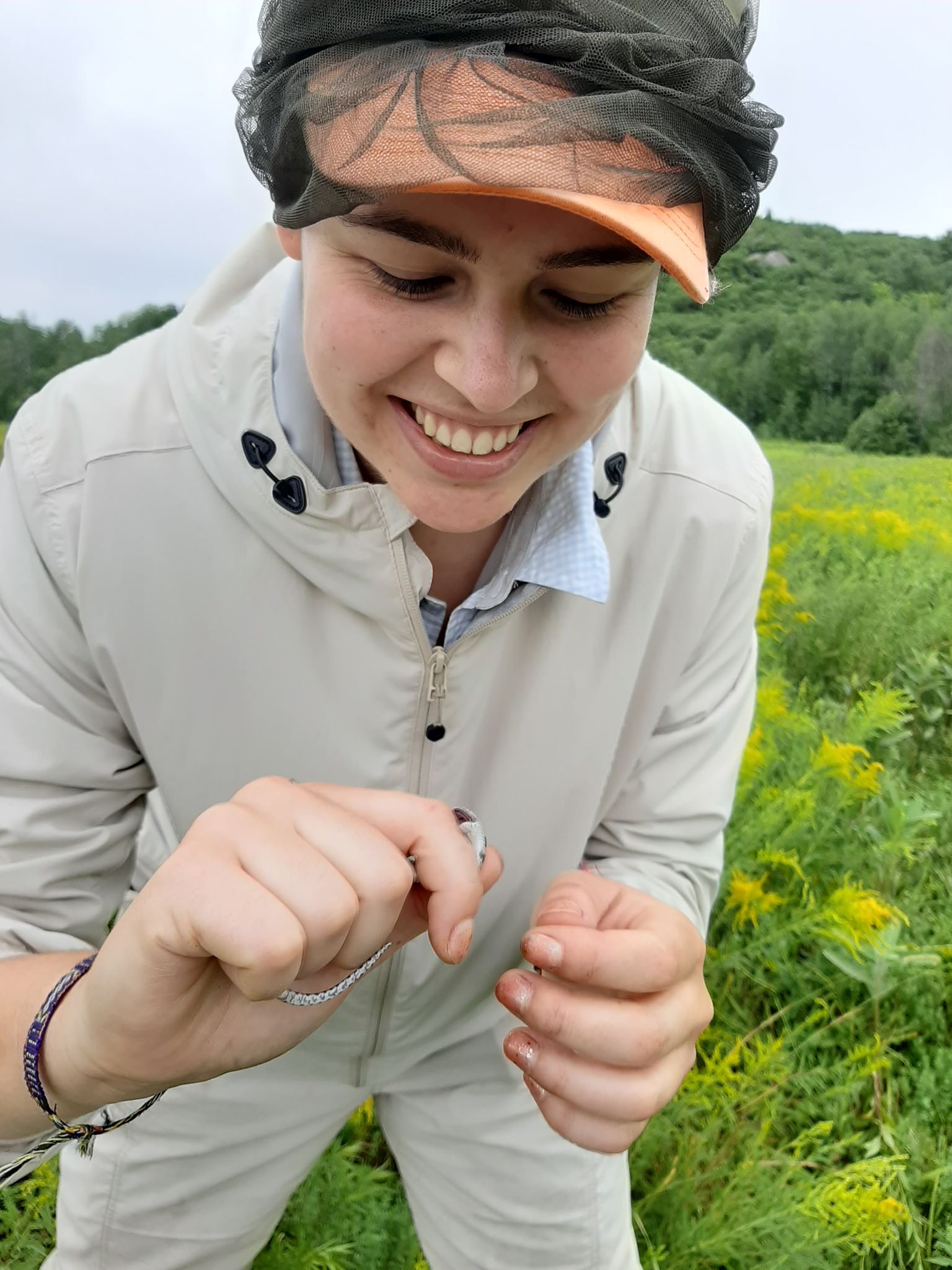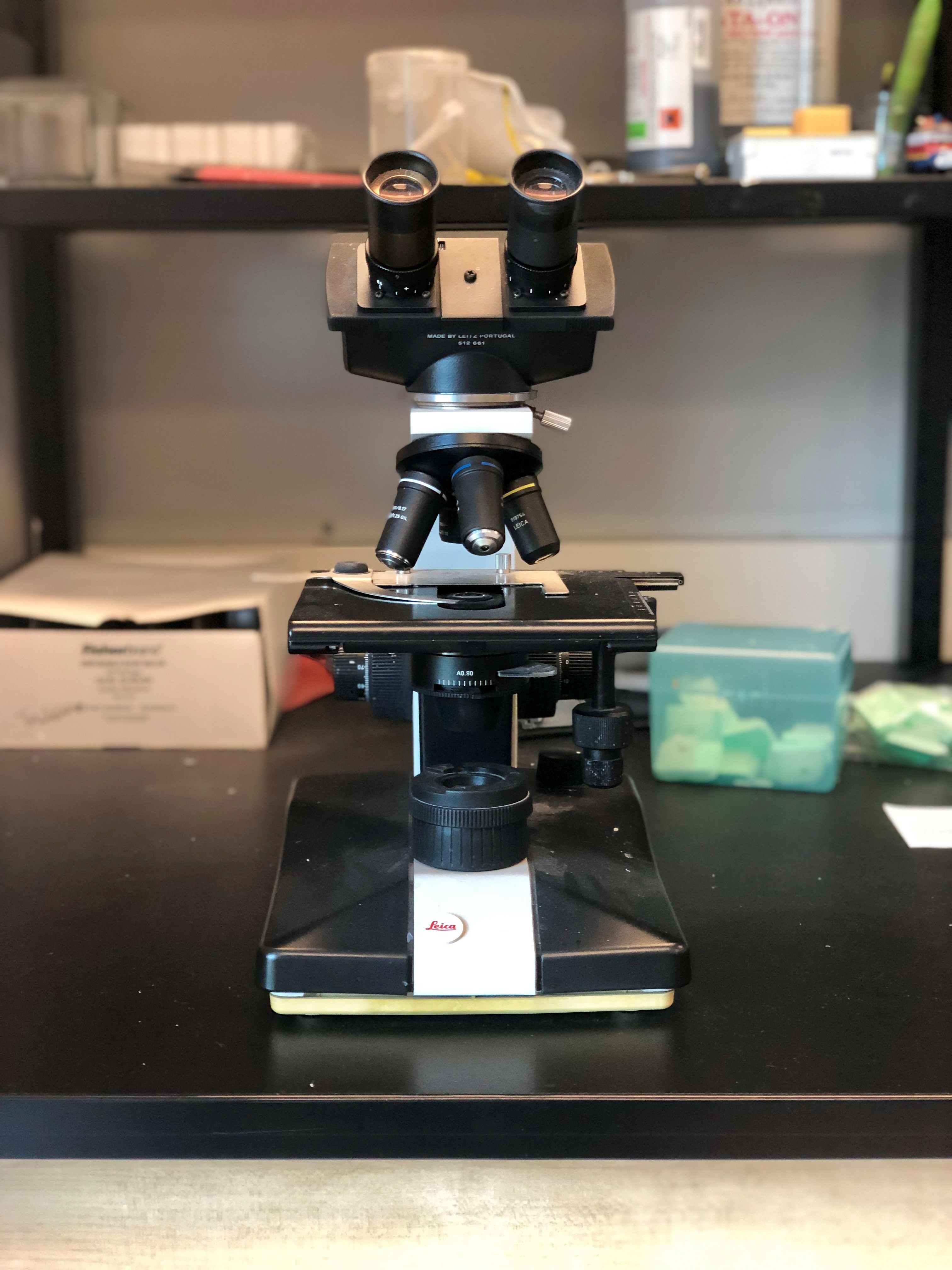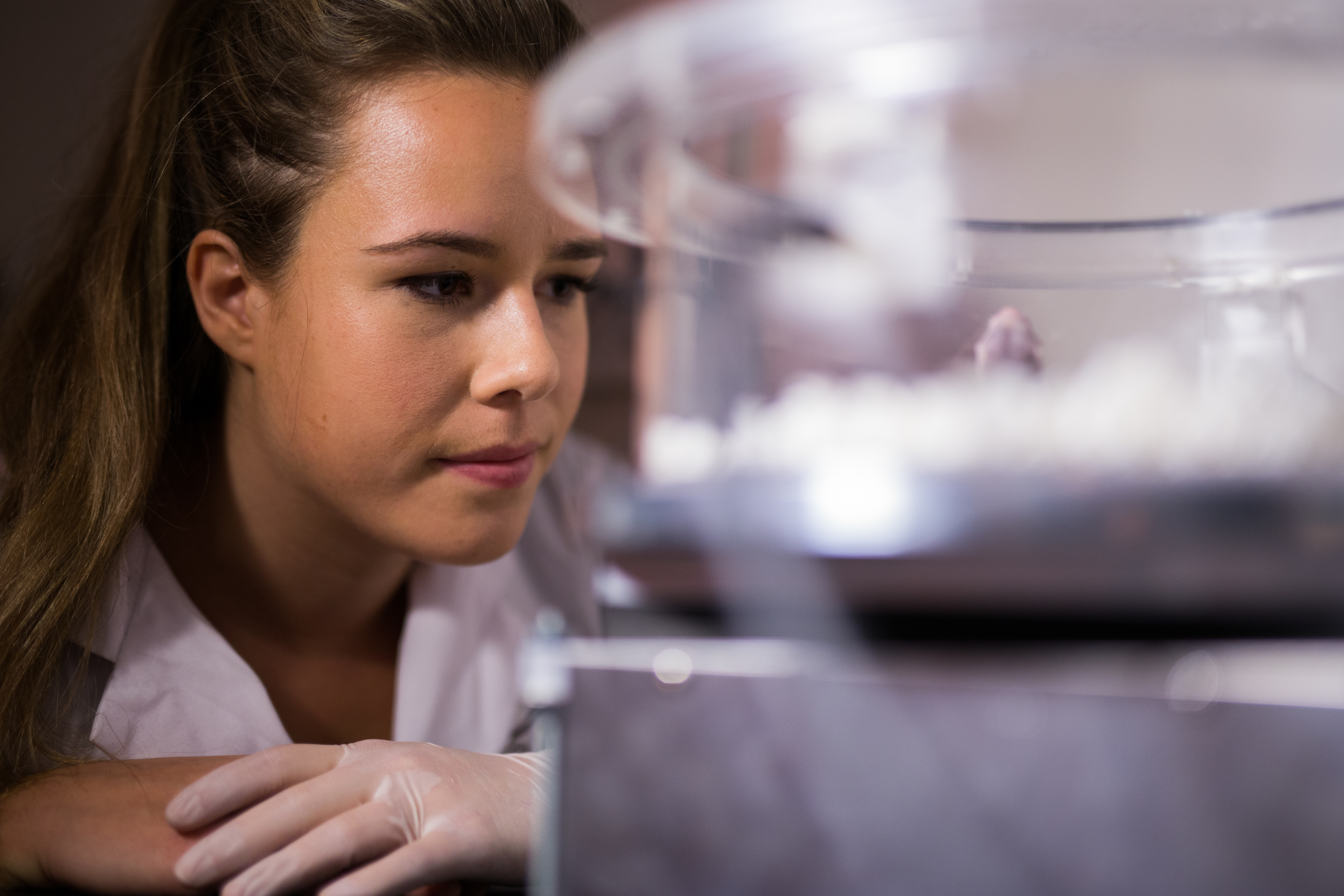Biomedical Science is an interdisciplinary program that focuses on the fundamentals of human structure and function, as well as those of other animals. The first two years provide a background in anatomy and psychology in addition to more in-depth knowledge in basic sciences like biology, biochemistry, chemistry and mathematics. After year two, you can choose to combine additional courses in biology and biochemistry with an array of optional courses and obtain a minor in one of many arts or social sciences programs, or you can choose an option in the life sciences, such as neuroscience, cellular and molecular medicine, bioanalytical science, biostatistics and medicinal chemistry. Upon graduation, students are prepared for more advanced training in research or for admission into one of the professional programs in human health

Biomedical Science
Program description
DURATION
LOCATION
LANGUAGE
NOTES

Options and suggested course sequences
Explore the detailed suggested course sequence for Biomedical ScienceEnhance with a microprogram
The Microprogram in Science Entrepreneurship provides an introduction to business management, new venture creation and entrepreneurship that will allow you to take a new scientific idea to market. It also includes a course on creativity and innovation, and a fourth year capstone course specifically dealing with commercializing a scientific product.
Microprogram in Science Entrepreneurshipprogram requirements
Program learning outcomes
By the end of this program, students will be able to:
Depth and Breadth of Knowledge
- Explain the chemical and physical underpinnings of life;
- Explain and integrate the key concepts of living systems such as biological diversity and its evolution, cellular organization, transmission of biological information, structure-function relationships, and functioning of physiological systems;
- Apply the scientific method including formulating a hypothesis, designing studies, and drawing conclusions.
Knowledge of methodologies
- Demonstrate a set of core field and laboratory-based observations, measurements and sampling techniques;
- Identify and depict patterns in biological data;
- Acquire, process and analyze data using appropriate bibliographic, mathematical and statistical techniques.
Application of knowledge
- Acquire and collate the information and data relevant to a given biological question and objectively interpret them to draw an informed conclusion;
- Use key concepts and methodologies in applied situations ranging from advanced laboratory to work and research settings.
Communication skills
- Develop and defend logical, coherent arguments;
- Disseminate biological information in written and oral format to scientific and non-scientific audiences.
Awareness of limits of knowledge
- Evaluate recent advances in biological knowledge and recognize the limits of the scientific process.
Autonomy and professional capacity
- Demonstrate professional work habits and ethical conduct when working individually or as part of a team.
Laboratories
- 10 state-of-the-art teaching laboratories
- Traditional and virtual learning environment
- Research-grade microscopes and digital imaging systems
- Networked computers




